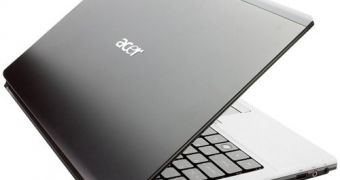After all the problems with the Intel chipset, that sales of notebooks would be bad during the now ended first quarter of 2011 is not really a surprise, but it might just be that shipments were even more dismal that analysts expected.
As end-users know, some time back Intel found out that its 6-Series chipset had a design flaw that caused SATA 3.0 Gbps ports to degrade.
This caused pretty much all motherboards and notebook based on it to be recalled en masse and sales practically stopped until recently, near the end of March, when shipments and product announcements began again.
That said, it has now been reported that overall shipments were actually worse than even analysts anticipated.
Basically, notebooks are no longer appealing enough to stimulate end demand, a fact confirmed by low ODM sales and implied to also be affecting AMD as well.
"Our contacts suggest Intel's Sandy Bridge products are not stimulating as much end demand as expected, likely impacting AMD too," said an analyst with FBR Capital Markets in a research note for clients," an FBR Capital Markets,analyst is reported to have said in a note for clients.
"Checks with the top six notebook ODMs have deteriorated of late, with first quarter [Q1] notebook builds downticking slightly from –10.5% quarter-over-quarter [QOQ] to –11% QOQ, and with Q2 builds downticking from an optimistic +15% QOQ (which we said was likely to be reduced) to +7% QOQ, worse than expected,” he added.
FBR Capital Markets saw both mainstream notebooks and SNBs (scientific notebooks) suffering from lower sales and enthusiasm on the customers' side.
With the flow of Cougar Point chipset restored, some hope that sales will pick up over the next few months, as certain end-users will have no doubt held off on getting a new mobile PC until the problems get fixed.
FBR does not think this will happen, expecting little, if any, increase during the second quarter.

 14 DAY TRIAL //
14 DAY TRIAL //